5. Dignan (Bottle Rocket, 1996)
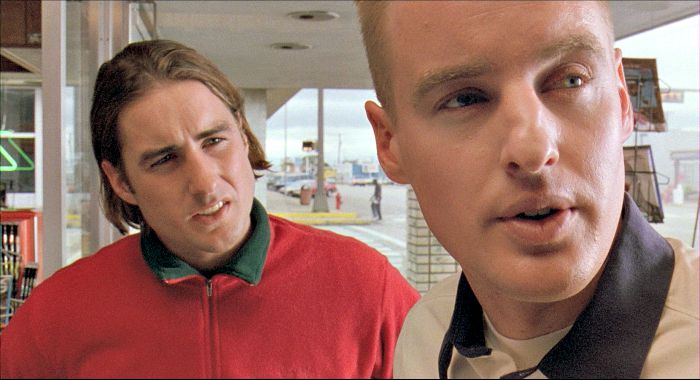
It can be said that, when working with Wes Anderson, Owen Wilson has proven to be quite a great actor. While he often plays a similar character in most of his films, it’s under Anderson’s direction that Wilson has given more serious and complex performances. Dignan, Eli Cash, Ned Plimpton and Francis Whitman are characters with completely different personalities – and Wilson has proven to be excellent in each role.
However, it was with Dignan (his first acting work) where we first get to see the kind of actor Wilson is. Certainly, it features his blonde, cool guy charisma that we all know. However, it brings something more than that. It brings a complex young man who wants to be more than what he can be. He is a complete dreamer who tries to reach his goal, no matter what, in spite of all the trouble he gets into during his adventure.
Now, while we have seen these kinds of characters in other Anderson films, it’s Wilson’s charming charisma and Anderson’s introduction that make the character (and the film) so great. After all, it was after seeing “Bottle Rocket” that Martin Scorsese himself said that Anderson was going to be the “New Scorsese”.
4. Margot Tenenbaum (The Royal Tenenbaums, 2001)
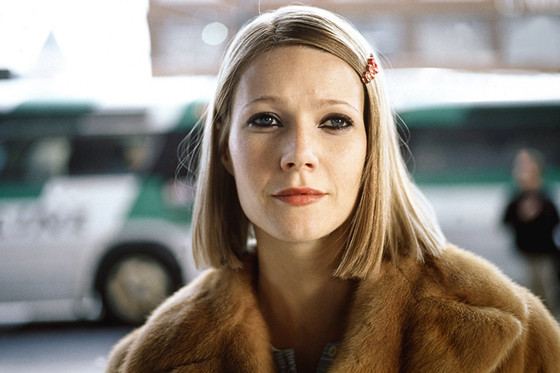
The third feature film of the director brought what could easily be his most notable and iconic female character – Margot Tenenbaum. Perfectly portrayed by Gwyneth Paltrow, Margot is one of the most complex individuals in a family filled with eccentric characters.
As the adoptive daughter of the family (something often pointed out by the family patriarch, Royal Tenenbaum), Margot soon became a great writer and developed an intimate relationship with her adoptive brother, Richie. However, the rest of her private life had become almost a complete secret to the family, until she became the depressed and unfaithful wife of famous neurologist, Raleigh St. Clair.
As one of the most depressed characters in Anderson’s world, Margot could have turned out as an annoying character with the wrong actress. However, Paltrow’s performance turned it into one of the coolest and one of the most complex characters in Anderson’s repertoire.
Despite her various failures and mistakes, Margot’s style and personality make her an highly interesting person with several strange and secret stories, such as losing a finger while searching for her biological family, a secret marriage at the age of 19, or various lesbian experiences. And of course, her strange but likable close relationship with Richie is one of the sweetest (and most tragic) love stories in Anderson’s filmography.
3. Max Fischer (Rushmore, 1998)
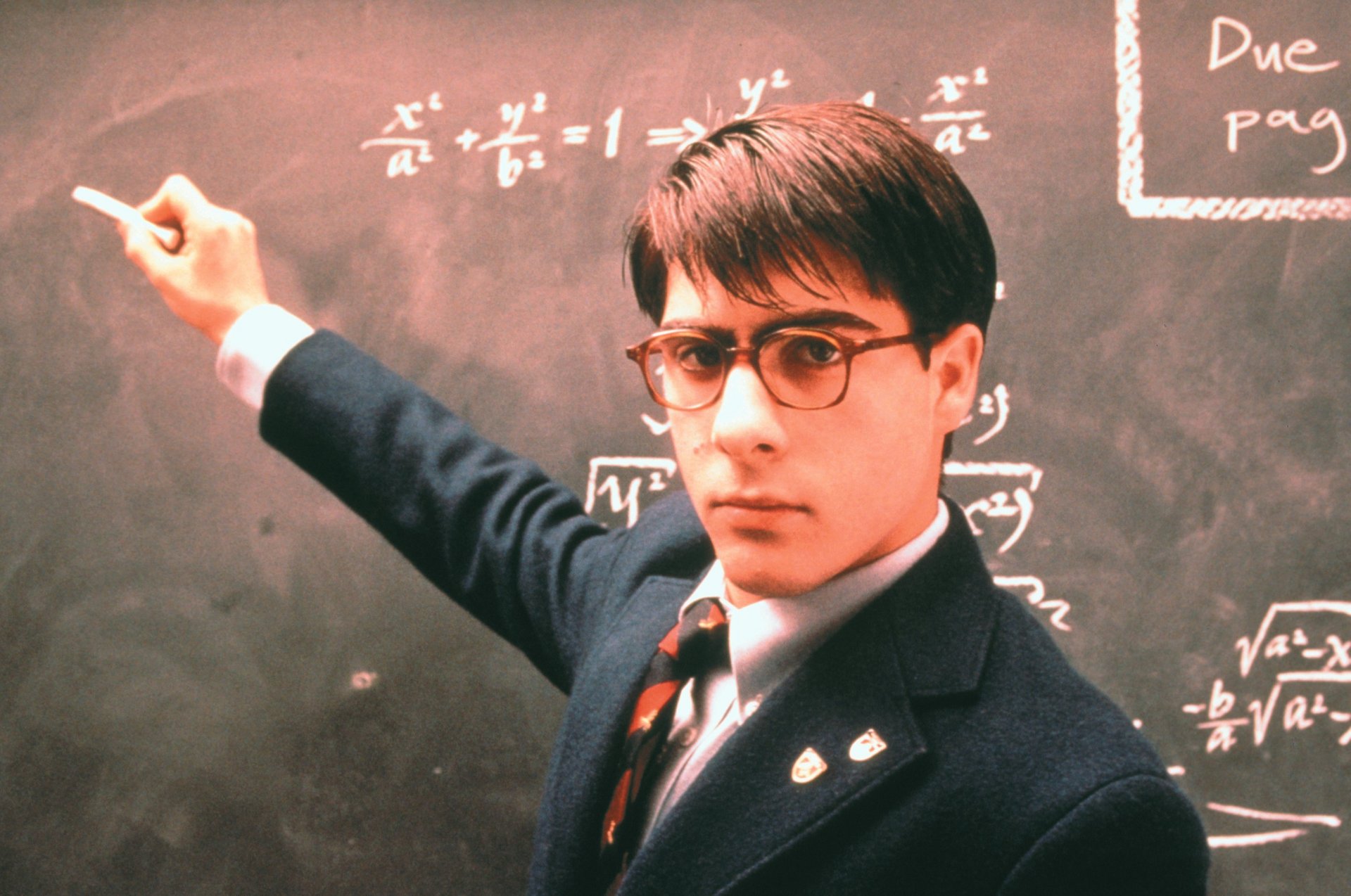
Played by recurrent Wes Anderson actor Jason Schwartzman in the first role of his career, Max Fischer is a complete Wes Anderson-ian character. He’s a highly smart yet eccentric teenager who doesn’t know how to deal with his emotions and who, along with his friend, the rich industrialist Herman Blume, falls in love with a new teacher in the Rushmore Academy, creating an odd, but undoubtedly cool coming-of-age film.
While arrogant (and maybe because of Schwartzman’s charisma), Fisher features an interesting charm that makes the character (and frankly, the film itself) stand out among several other similar works. For in spite of all his intelligence and scholarly (not social) abilities, Fisher finds himself dealing with something we all had to deal with – falling in love for the first time.
As with every Wes Anderson character or film, this is anything but common. However, it still finds a way to make audiences relate to him, for it turns out quite an interesting and cool experience.
2. Royal Tenenbaum (The Royal Tenenbaums, 2001)
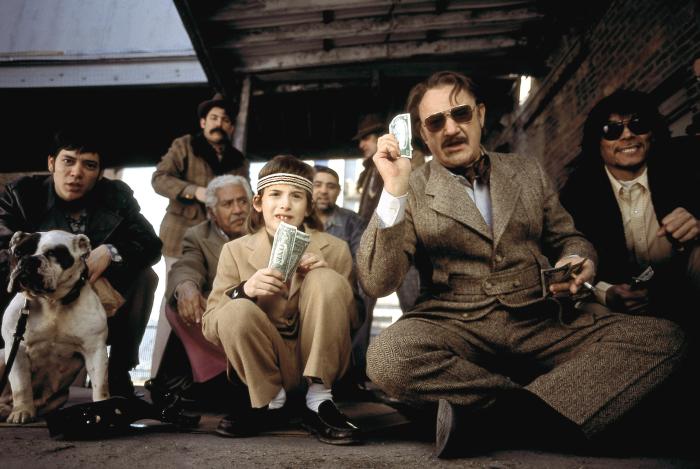
He’s the ultimate “bad father”. Anderson’s filmography is filled with dysfunctional families with complex men who, in spite of their intelligence or coolness, are bad fathers, whose personalities or decisions completely affect the lives of their sons. But there is no one as bad as Royal Tenenbaum. The patriarch of the Tenenbaum family was a high class lawyer, who never understood any of his kids and ended up separating from (but not divorcing) his wife, Etheline.
He always confronted his son Chaz (even shooting at him with a BB gun) and was indifferent to Margot, always introducing her as the adoptive member of the family. But once he discovers that his wife has received a marriage proposal (and that he doesn’t have any more money to pay the hotel he has been living in for several years), he makes up an lie about his health in order to “reunite his family”.
However, as the film goes, Royal discovers the many troubles that his family members are having, and even while he keeps lying to them about his health, he starts to care about them – which leads him to try to compensate for his behavior during their childhood and search for some redemption.
As much of a bastard as Royal can be at some points, we never get to see him as a bad person. We just see him as a bad father who, despite all of his terrible mistakes and his complex personality, reconnects his family in a very peculiar way. This, along with Gene Hackman’s excellent performance, makes Royal one of the most iconic, developed, complex, terrible, but coolest characters in Anderson’s filmography.
1. Gustave H. (The Grand Budapest Hotel, 2014)
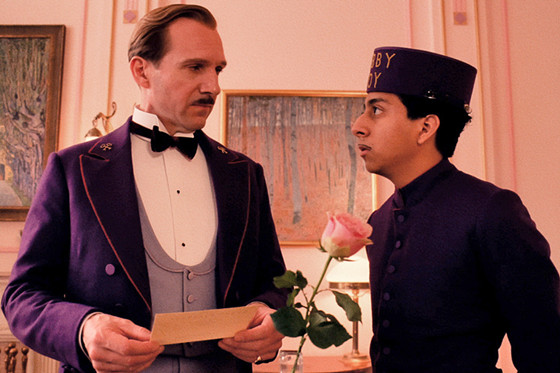
Portrayed by Ralph Fiennes in what may be one of his most iconic performances, as well as his most charming, the devoted concierge of The Grand Budapest Hotel, Gustave H., is a complete gentleman trying to keep the charms of a past era, in the changing times of 1930s Europe. This, while finding himself in the middle of a dark and complex plot, attempts to make him look guilty of the death of one of his lovers, Madame D.
Unlike most of Anderson’s characters, Gustave H. doesn’t show a deep feeling of depression, nor of family issues. Instead, it brings an charming persona that manages The Grand Budapest in a more than perfect way, becoming its heart and soul. However, despite his popularity among guests, he is a lonely person, who develops a perfect mentor-mentee relationship with Zero Moustafa.
It may be because of Fiennes’ talents or the film’s nostalgic feeling, but as a leader, mentor, poet, lover, fugitive and, above all, gentleman, Gustave H. is undoubtedly one of Anderson’s best and most iconic and complex characters, and one of the most charming in the cinema of recent years.
Which Wes Anderson characters would you add to the list? Let us know on the comments below!
Honorable Mentions:
Abe Henry (James Caan, Bottle Rocket); Herman Blume (Bill Murray, Rushmore); Eli Cash (Owen Wilson, The Royal Tenenbaums); Eleanor Zissou (Anjelica Huston, The Life Aquatic with Steve Zissou); Jane Winslett-Richardson (Cate Blanchett, The Life Aquatic with Steve Zissou); Alistair Hennessey (Jeff Goldblum, The Life Aquatic with Steve Zissou); Francis, Peter and Jack Whitman (Owen Wilson, Adrien Brody and Jason Schwartzman,; The Darjeeling Limited); Felicity Fox (Meryl Streep, Fantastic Mr. Fox); Captain Sharp (Bruce Willis, Moonrise Kingdom); Scout Master Ward (Edward Norton, Moonrise Kingdom); Zero Moustafa (Tony Revolori and F. Murray Abraham, The Grand Budapest Hotel); Dmitri Desgoffe und Taxis (Adrien Brody, The Grand Budapest Hotel); J. G. Jopling (Willem Dafoe, The Grand Budapest Hotel).
Author Bio: Patryk Suchocki is a Mexican student on Cultural Management at the Universidad de Guadalajara and enthusiastic cinephile. He likes indie films, auteur cinema and writing short stories.